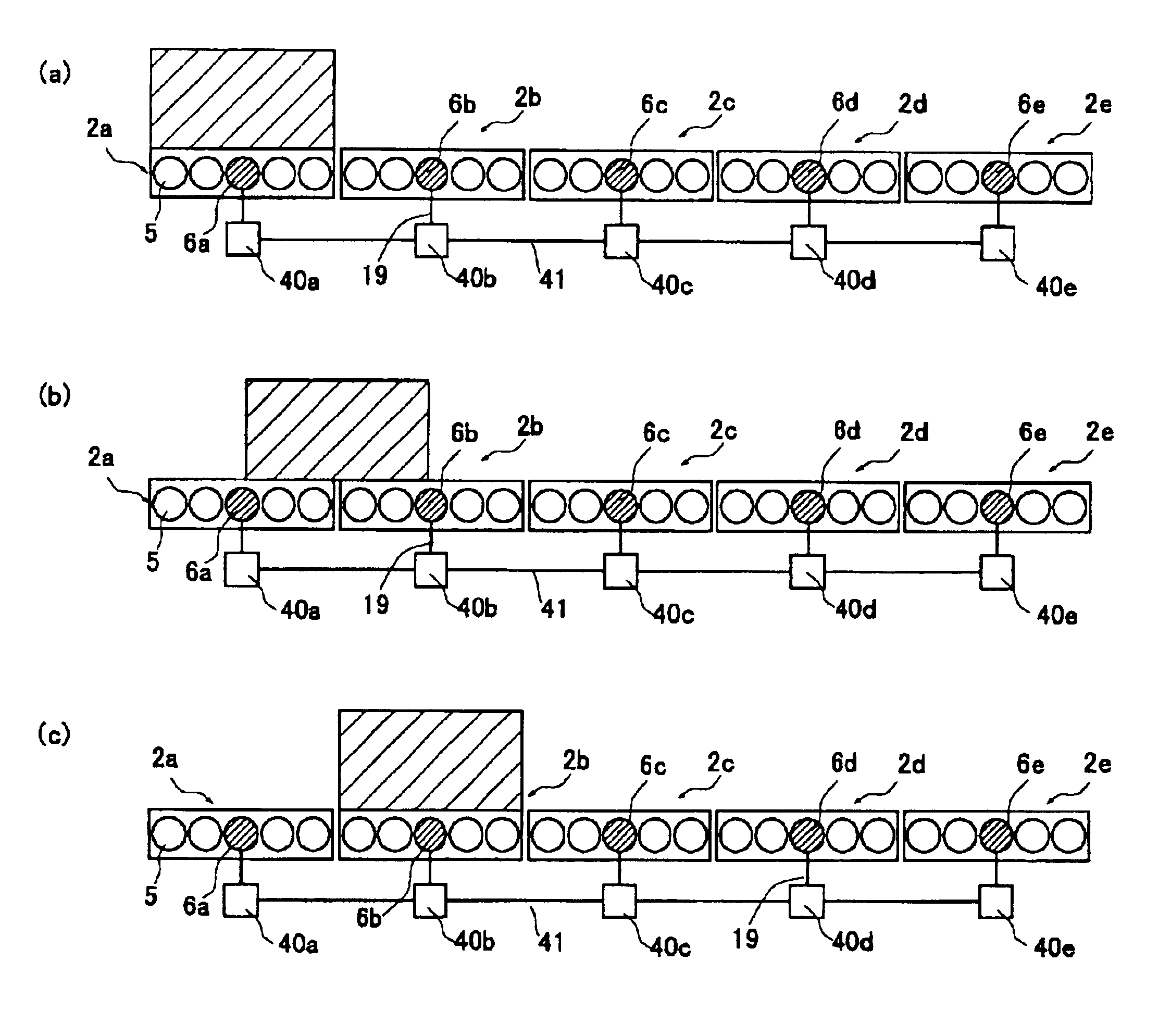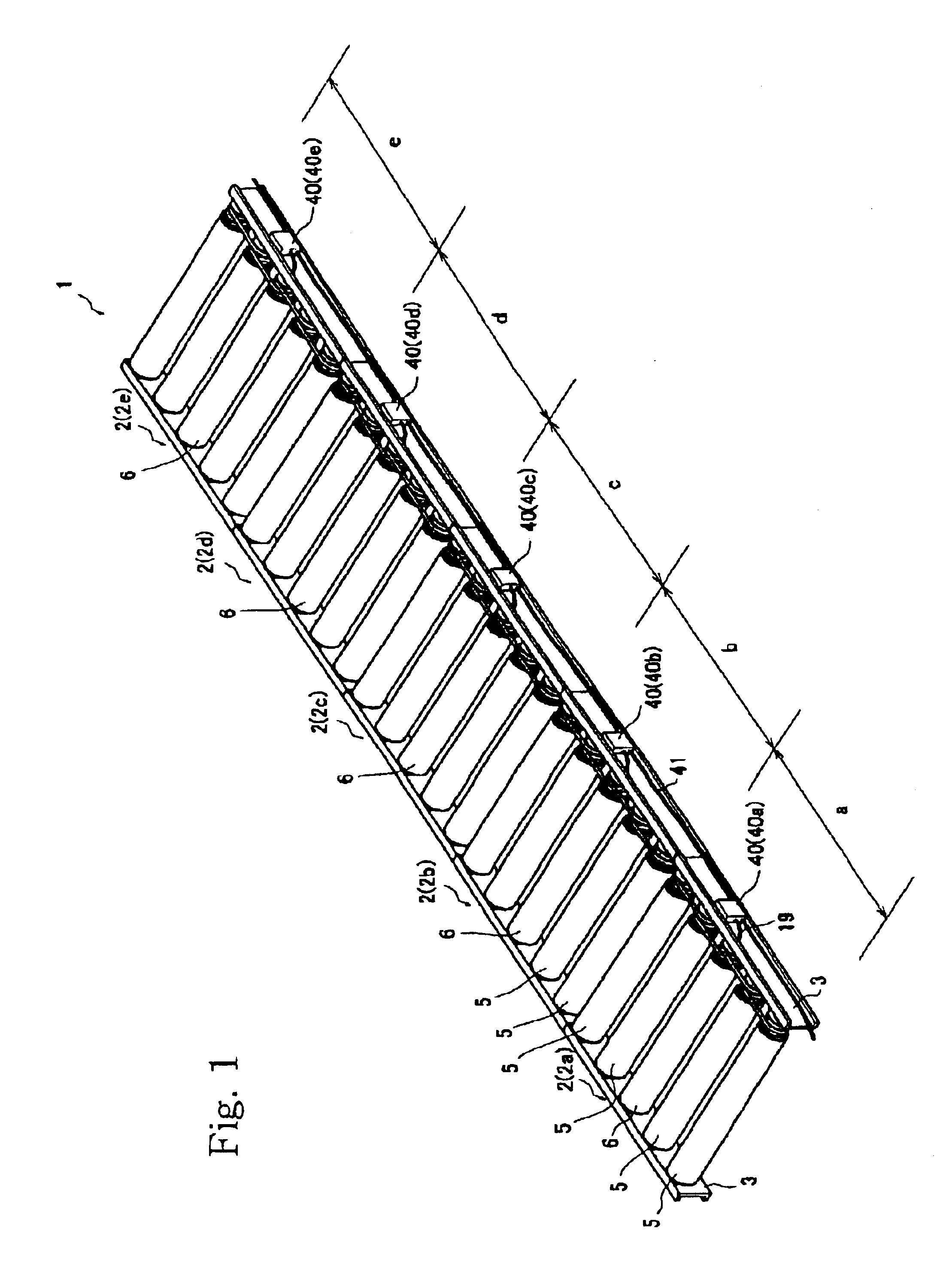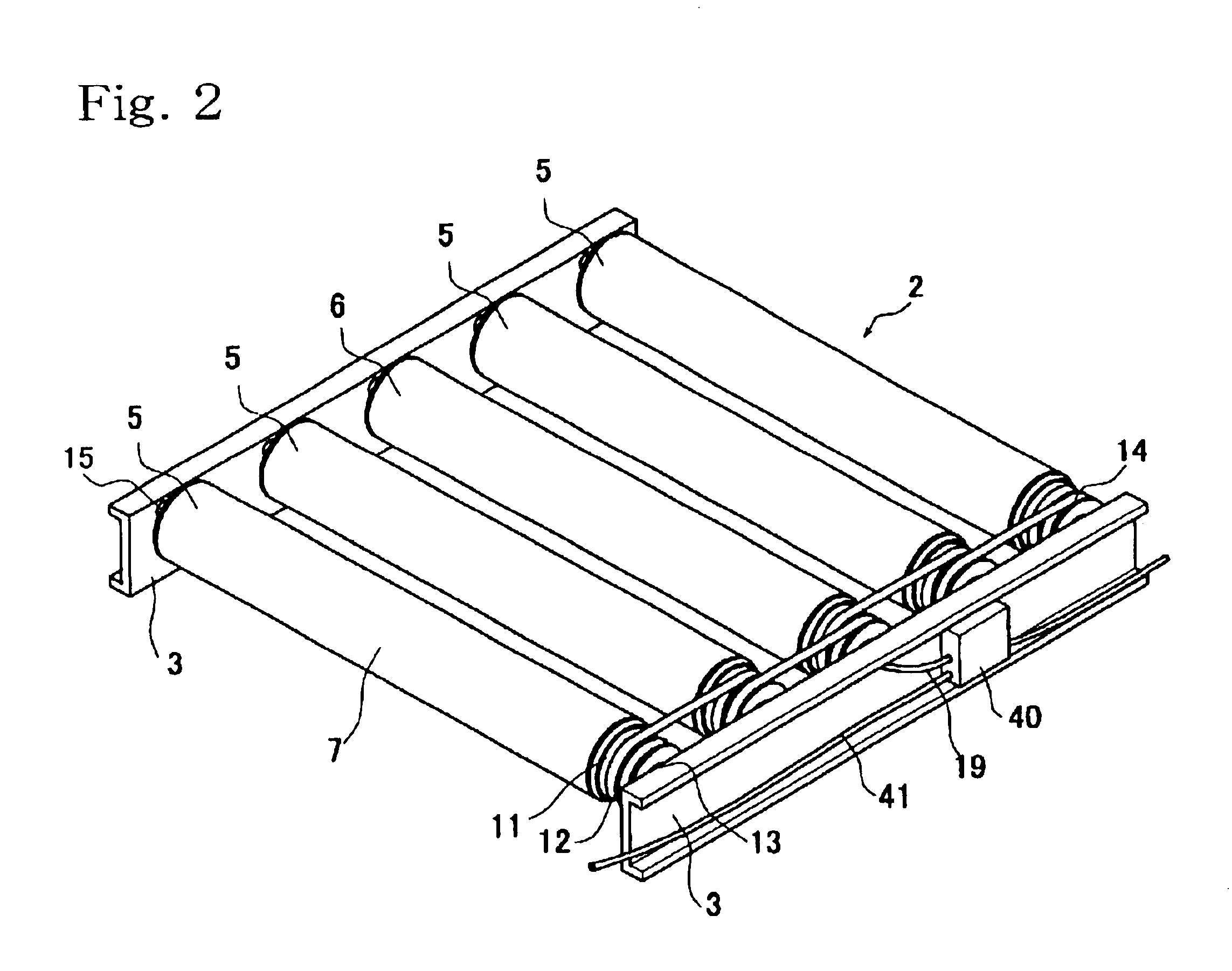Conveying apparatus
a technology of conveying equipment and conveyors, which is applied in the direction of conveyor control devices, conveyor parts, roller-ways, etc., can solve the problems of complex and expensive assembly of the conveying equipment, the principle does not apply to the downstream end region of such a transportation line, and it is difficult for this article to make a sharp change in the rotational direction from forward to rearward
- Summary
- Abstract
- Description
- Claims
- Application Information
AI Technical Summary
Benefits of technology
Problems solved by technology
Method used
Image
Examples
Embodiment Construction
Now, some embodiments of the present invention will be described in detail referring to the drawings.
A conveying apparatus 1 consists of 5 (five) modules 2 (viz., 2a, 2b, 2c, 2d and 2e) that are connected one to another in this order along the conveying line, in an example shown in FIG. 1. In other words, such a conveying line is divided into five sequential unit zones `a`, `b`, `c`, `d` and `e` arranged in this order. Each module 2 is composed of 4 (four) free rollers 5 and 1 (one) motorized roller 6 that are supported in parallel by and between frames 3 and 3 extending in parallel with each other. In each module 2 defining one of the unit zones of the conveying line, the motorized roller 6 is disposed at the point midway in this unit zone in a direction of article transportation. Two of the free rollers 5 lie on a forward side of each motorized roller 6, with the other two free rollers lying on a rearward side of this motorized roller, all in parallel with each other.
Each free or ...
PUM
 Login to View More
Login to View More Abstract
Description
Claims
Application Information
 Login to View More
Login to View More - R&D
- Intellectual Property
- Life Sciences
- Materials
- Tech Scout
- Unparalleled Data Quality
- Higher Quality Content
- 60% Fewer Hallucinations
Browse by: Latest US Patents, China's latest patents, Technical Efficacy Thesaurus, Application Domain, Technology Topic, Popular Technical Reports.
© 2025 PatSnap. All rights reserved.Legal|Privacy policy|Modern Slavery Act Transparency Statement|Sitemap|About US| Contact US: help@patsnap.com



